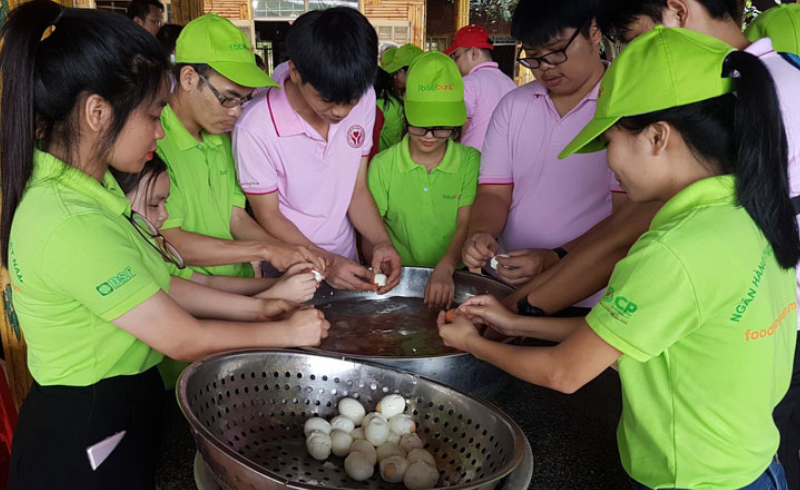Sitting on a street corner in Saigon, it’s easy to catch the sight of street children polishing shoes and old women selling lottery tickets. These are just a few among the many Vietnamese people who may also struggle to put food on their tables every single day. Statistics from the Vietnamese Fatherland Front show that in the first half of 2017, there were 574,000 people suffering from hunger in Vietnam.

On the other hand, food waste is a widespread issue throughout the country at almost all stages of the supply chain. A survey by Electrolux on 4,000 households in eight Asia-Pacific countries suggested that Vietnam is the second largest producer of food waste in the region, behind China. 87 percent of the households admitted that they waste two plates of food per week on average.
There are many reasons why Vietnamese people waste so much food. Culturally, preparing more food than necessary is considered a gesture of hospitality and generosity. This has become a custom not only in families but also in restaurants and ceremonies. While Vietnamese people have a habit of saving leftovers for the next meals, nearly 50 percent of people surveyed said that they often forget about excess food or fresh ingredients left in the fridge.

A considerable amount of food is also lost or damaged during production, storing, transportation and distribution, due to the lack of investment in technology and infrastructure. The preference for fresh food also means that items more than a day old, though still safe to eat, are too easily considered garbage and thrown away because no one is buying them.
In Ho Chi Minh City alone, food waste accounts for more than 60 percent of the city’s 8,300 tons of solid waste per day. In previous City Pass Guide reporting, Nguyen Toan Thang, Director of HCMC Department of Natural Resources and Environment, said that up to 76 percent of this waste ends up getting buried in the city’s vast landfills, which leads to severe air, water and soil pollution in the surrounding area.

Until now, there has been no concerted effort to collect unwanted food and distribute it to those in need, thereby preventing it from becoming waste. This is where Food Bank Vietnam steps in.
Project founder Nguyen Tuan Khoi shared his vision for Food Bank Vietnam. “We want to build not only a charity project distributing food for poor and disadvantaged people, but we also aim to engage businesses such as restaurants, food producers and supermarkets, in the movement to save food, avoid wastage and supply food for the people who actually need it,” he said.
The project is a non-profit project established by Development and Sharing Foods (DSF) and C.P. Vietnam. C.P. Vietnam is a branch of Thailand-based C.P. Group, one of the largest Thai conglomerates in agriculture and food processing.
To do this, Food Bank Vietnam plans to start with supporting ten community houses and homeless centers in 2018, by providing them with free food, such as pork and rice, on a regular basis. It will also organize cooking sessions with the ingredients collected from donors, and distribute the meals to disadvantaged groups in Saigon through the help of a team of volunteers.

In April 2018, Food Bank Vietnam will organize a seminar called Chong lang phi thuc pham (Fighting Food Waste) for representatives from the food and beverage industry to raise awareness among them about reducing food waste and ask for them to redirect their excess food from the waste stream.
In the long term, it plans to develop a system of “Mobile Food Banks”, or stations to receive and give out free food, as well as “Food Bank Eateries”, selling low-priced meals for the disadvantaged throughout the country.
Another important part of the project is to build an emergency food bank to provide food during natural disasters, such as floods and hurricanes, which happen every year in Vietnam. With support from the Vietnamese Committee of Red Cross and the Youth Social Work Centre, the project founder is optimistic that this is achievable within five years and will be sustainable in the future.
Theo Banner Image source: markhamreview.com


